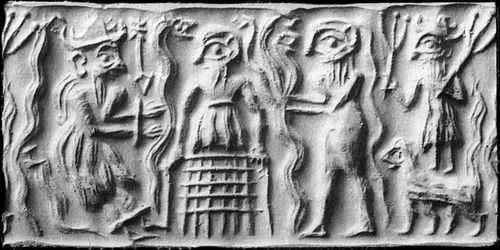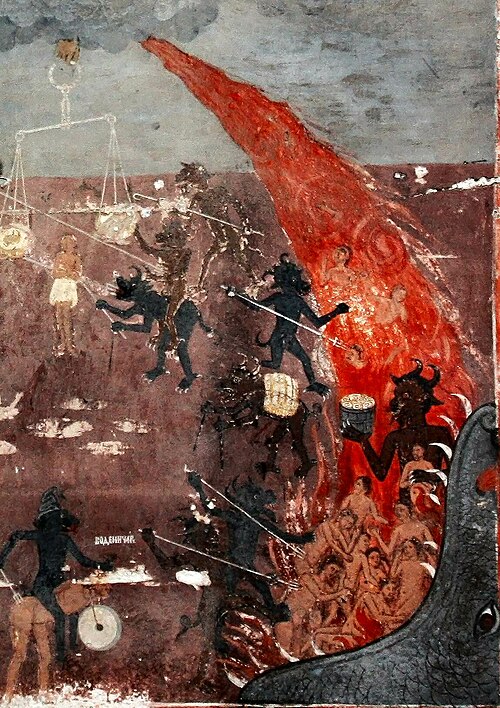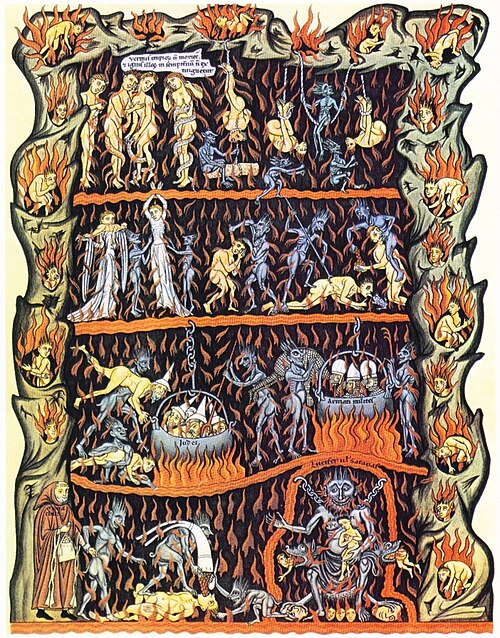Hellproper noun
In various religions, the place where some or all spirits are believed to go after death
Hellproper noun
The place where devils live and where sinners suffer after death
Hellnoun
A place or situation of great suffering in life.
Hellnoun
(countable) A place for gambling.
Hellnoun
(figuratively) An extremely hot place.
Hellnoun
Used as an intensifier in phrases grammatically requiring a noun
Hellnoun
(obsolete) A place into which a tailor throws his shreds, or a printer his broken type.
Hellnoun
In certain games of chase, a place to which those who are caught are carried for detention.
Hellinterjection
Used to express discontent, unhappiness, or anger.
Hellinterjection
Used to emphasize.
Hellinterjection
Used to introduce an intensified statement following an understated one; nay; not only that, but.
Hellverb
To add luster to, burnish (silver or gold).
Hellverb
(rare) To pour.
Hellnoun
The place of the dead, or of souls after death; the grave; - called in Hebrew sheol, and by the Greeks hades.
Hellnoun
The place or state of punishment for the wicked after death; the abode of evil spirits. Hence, any mental torment; anguish.
Hellnoun
A place where outcast persons or things are gathered
Hellverb
To overwhelm.
Hellnoun
any place of pain and turmoil;
Hellnoun
a cause of difficulty and suffering;
Hellnoun
(Christianity) the abode of Satan and the forces of evil; where sinners suffer eternal punishment;
Hellnoun
(religion) the world of the dead;
Hellnoun
violent and excited activity;
Hellnoun
noisy and unrestrained mischief;
Hellnoun
a place regarded in various religions as a spiritual realm of evil and suffering, often traditionally depicted as a place of perpetual fire beneath the earth where the wicked are punished after death
Hellnoun
a situation, experience, or place of great suffering
Hellinterjection
used for emphasis or to express anger, contempt, or surprise
Hell
In religion and folklore, hell is an afterlife location in which evil souls are subjected to punitive suffering, often torture, as eternal punishment after death. Religions with a linear divine history often depict hells as eternal destinations, the biggest examples of which are Christianity and Islam, whereas religions with reincarnation usually depict a hell as an intermediary period between incarnations, as is the case in the dharmic religions.
Purgatorynoun
(Christianity) nodot=a
Purgatorynoun
Any situation where suffering is endured, particularly as part of a process of redemption.
Purgatoryadjective
Tending to cleanse; expiatory.
Purgatoryadjective
Tending to cleanse; cleansing; expiatory.
Purgatorynoun
A state or place of purification after death; according to the Roman Catholic creed, a place, or a state believed to exist after death, in which the souls of persons are purified by expiating such offenses committed in this life as do not merit eternal damnation, or in which they fully satisfy the justice of God for sins that have been forgiven. After this purgation from the impurities of sin, the souls are believed to be received into heaven.
Purgatorynoun
a temporary condition of torment or suffering;
Purgatorynoun
(theology) in Roman Catholic theology the place where those who have died in a state of grace undergo limited torment to expiate their sins
Purgatorynoun
(in Catholic doctrine) a place or state of suffering inhabited by the souls of sinners who are expiating their sins before going to heaven
Purgatorynoun
mental anguish or suffering
Purgatoryadjective
having the quality of cleansing or purifying
Purgatory
Purgatory (Latin: purgatorium, borrowed into English via Anglo-Norman and Old French) is, according to the belief of some Christians (mostly Catholics), an intermediate state after physical death for expiatory purification. The process of purgatory is the final purification of the elect, which is entirely different from the punishment of the damned.


































